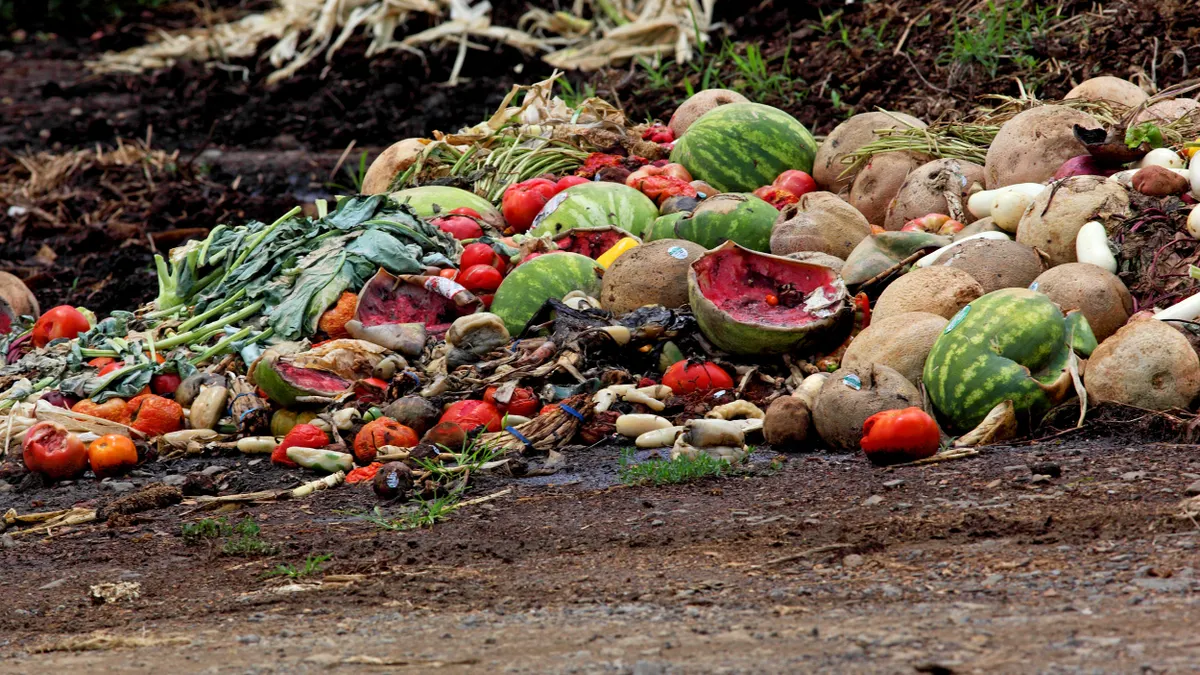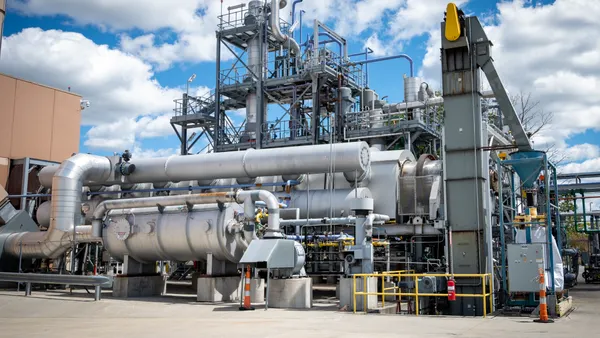Dive Brief:
- Massachusetts' rule requiring many commercial generators of organic waste to divert the material from disposal has boosted organics recycling in the state, a survey of 30 companies commissioned by the Department of Environmental Protection found.
- Total revenue increased for collection and hauling business, processors and food rescue organizations between 2015 and 2024. Rescue organizations grew revenue the most, at 151%, but haulers also grew revenue by 78% and brought in nearly $104 million last year, three times more than the other two respondent types.
- Organics haulers, processors and food rescue organizations have all reported increases in employee headcount and revenue since 2016, the last time the state commissioned a report. But they saw the biggest increase immediately after the ban was implemented in 2014, per DEP.
Dive Insight:
Massachusetts is one of nine states with a commercial organic waste disposal ban. A study in the journal Science last year looked at waste data from five states with the bans through 2018, and found that the states' ability to divert organics from landfill was mixed.
But Massachusetts stood out during the study period, dropping landfill tonnage by at least 7% on average over five years. Researchers attributed that success to available infrastructure, easy-to-understand regulation and strong enforcement.
The state’s ban originally applied to generators of more than one ton of organic waste per week in 2014, and expanded to include generators of more than a half ton of waste in 2022. Massachusetts DEP last took a close look at the ban's effects in 2016. By that time, the ban had already generated $175 million in economic activity and spurred more than $50 million in capital investments from organizations across the organics recycling supply chain.
The 2025 study, which DEP commissioned from ICF, found that the average tonnage handled by organics processors doubled between 2016 and 2024. The average amount of organics handled by processors last year was 9,777 tons.
The state has seen its processing infrastructure shift in recent years. The majority of organic waste is now processed via anaerobic digestion, and compost volumes have declined in recent years. Officials are considering a variety of efforts to increase tonnages, including expanded enforcement and a universal organics ban that would include residential waste.
Total tonnage of organics handled by processors increased from 206,756 tons in 2016 to 342,203 tons in 2024. In 2010, before the ban was in effect, Massachusetts processors handled just 22,528 tons of organic waste, meaning total tonnage increased more than 14 times over 14 years.
All of that organic material has been good for business. In 2024, six haulers and processors reported revenue in excess of $1 million, with haulers reporting the highest average revenue.
Revenue growth across Massachusetts' organic recycling industry
Employment is also up. While the largest increase in headcount came immediately after the ban went into effect, employers across organics recycling grew between 2016 and 2024.
Collection and hauling companies in the state in 2024 each employed more than 11 people on average in 2024, compared to nearly 7 in 2016. Those businesses now employ about 305 people in the state, up from 259 in 2016.
Processing companies also saw slight increases in average headcount and now employ 31 more people in the state, for a total of 177 employees. Food rescue organizations also saw both average headcount and total employment rise; they now employ 139 people, up from 88 in 2016.
The report concluded that the ban's rollout was received positively across the board, with organizations praising "the deliberate pacing [that] has allowed capacity to keep up with demand."











